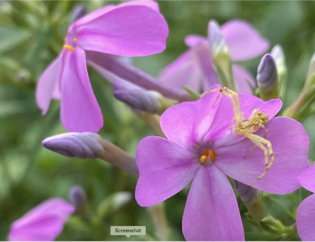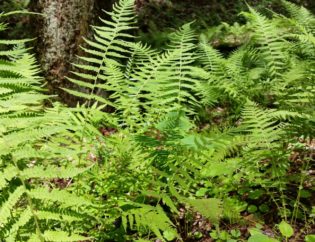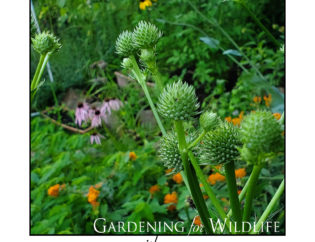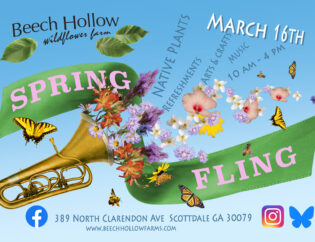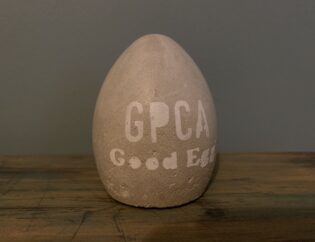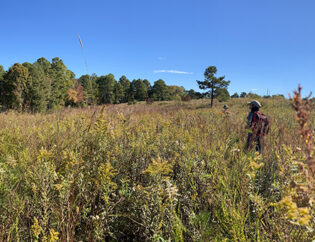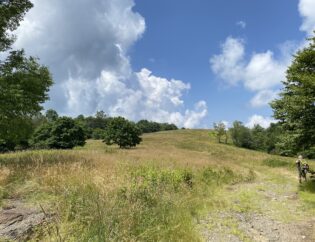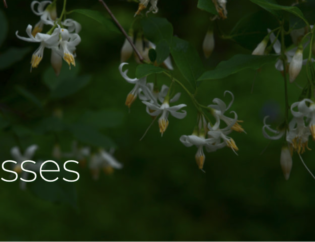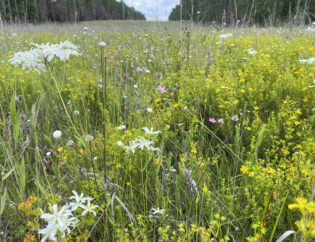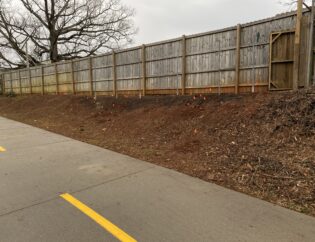
If you have been outside at all lately, whether walking through the woods, spending time in your garden, or even just sitting on the porch, chances are you’ve come in contact with a spider, or at least its web. Most spiders have gotten a bad rap over the years as something to fear. Movies, Halloween decorations, pest control advertising, and the spiders’ skittish behavior play into these fears. While most spiders are venomous, very few have the jaw-power or enough venom to do any real harm to a human. The brown recluse and the black widow are exceptions, but chances are slim you will come across these in your garden (Even if they did manage to bite you the chances of it being fatal are basically zero). Remember, you are much larger than a spider and they are more interested in getting away from you than biting you.
You may be thinking, ‘well, even if the spider won’t harm me, they eat everything, including the pollinators, so why have them around?’ True, spiders are not picky eaters and will eat the “good bugs” along with the “bad.” Spiders may be the most beneficial predator in your garden and play a huge role in controlling pests. They are not selective in the insects they eat, so it is guaranteed that they will occasionally snag a bee or butterfly in their web, but the few beneficials they do kill is no match for the natural pest control they provide (free of charge, I might add!). Spiders will feast on aphids, armyworms, leafhoppers, flea-hoppers, leafminers and spider mites. They attack the spruce budworm, pine sawfly, sorghum midge and tobacco budworm. They especially like caterpillars, thrips, plant bugs, cucumber beetles, scarabs and flies. Larger spiders eat larger prey, so some will even eat wasps, cicadas, and grasshoppers. If you’re really lucky, you may even get to see a spider and a praying mantis battle it out.
There are two types of spiders that you are likely to come across in your garden: web spinners, or orb weavers, and hunters. Garden spiders and crab spiders are very common web spinners in Georgia. They spin their webs between plant stalks, tree branches, or even from tree branch to ground. Spiders usually hang out in the middle of their web and wait for an unsuspecting insect to fly into the nearly invisible trap. Garden spiders are often large, like the yellow and black orb weaver or the green garden spider, so hopefully you will catch a glimpse of them before accidentally walking straight through their web. However, they sometimes hide in a protected corner and wait for their prey from a safe spot. Crab spiders tend to be small and crouch in the center of the web with their eight legs pulled under their armored shell, making them harder to detect as you approach their web.
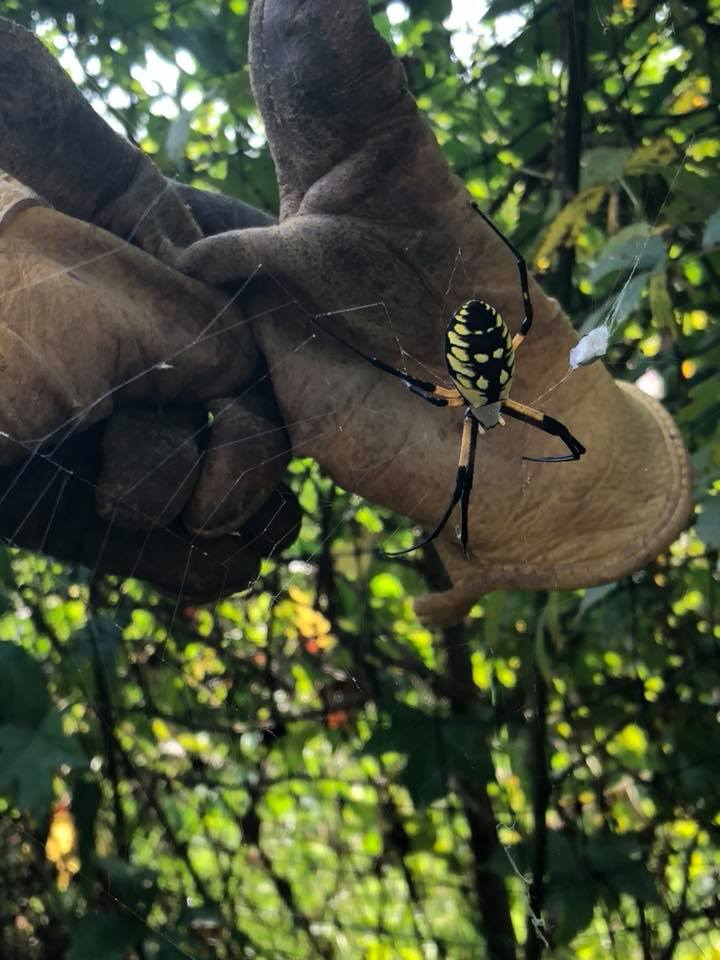
Wolf spiders are a common hunting spider and do not spin traditional webs. They are most likely to be found on the ground, nesting in mulch, ground covers and old wood piles. If you have tall grass in or near your garden you may be lucky enough to attract a funnel spider. The aptly named funnel spider creates a dense funnel with their silk and waits safely in the back for prey to wander onto the outer funnel before they attack.
Female spiders tend to lay eggs in the fall. They may hatch quickly or overwinter in an egg sack before emerging in the spring. Wolf spiders will attach the egg sack to their body and carry it with them if they feel they are in danger and need to move. When the baby spiders emerge from the egg sack they will “balloon” by shooting a silky thread from their web spinner into the air. When it attaches to a sturdy object (leaf, branch, twig, building, etc.) they will ascend the thread and find a good place to start their first web (anyone remember “Charlotte’s Web?”).
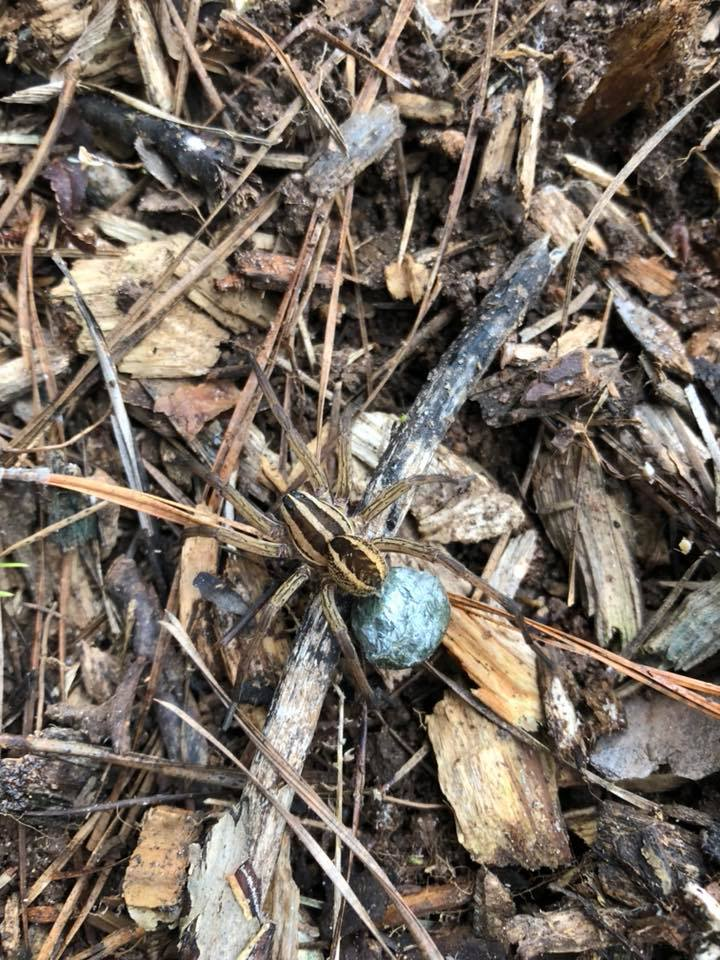
To encourage spiders in your garden plant a variety of plants with varying heights, preferably plants native to Georgia. Taller plants provide a structure for orb weavers to attach their webs, and low growing ground covers create niches in which the hunters can hide. Mulch provides a good home and helps retain moisture for wolf spiders since they do not have webs to catch the morning dew. Leave small patches of bare ground here and there for open hunting ground for the wolf spiders. Woody plants and bunch grasses make great homes for funnel spiders. All spiders play a valuable role in your gardens’ ecosystem and should not be eradicated. Do not feel bad if you accidentally destroy a spider’s web. They will quickly move on and begin building a new one. Predators like spiders are a sign of a healthy ecosystem, and acknowledging the pest control services they provide is a great way to start to appreciate them as garden collaborators rather than something to be feared.
